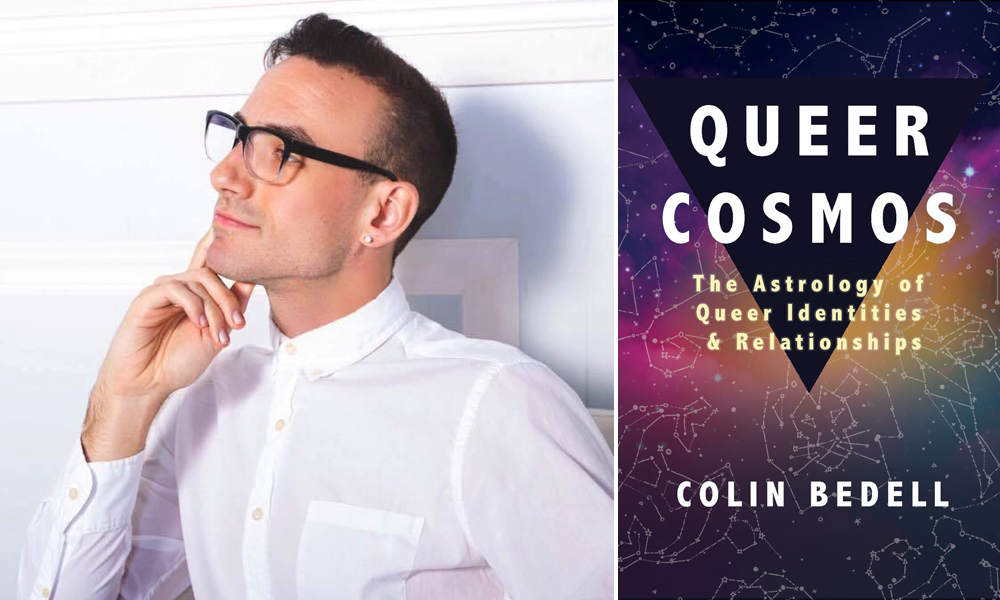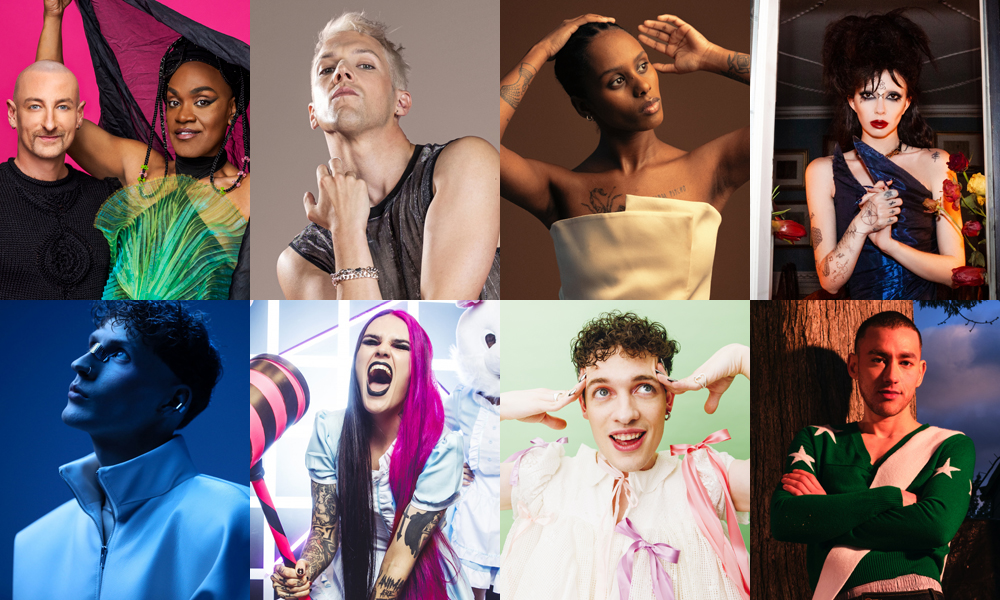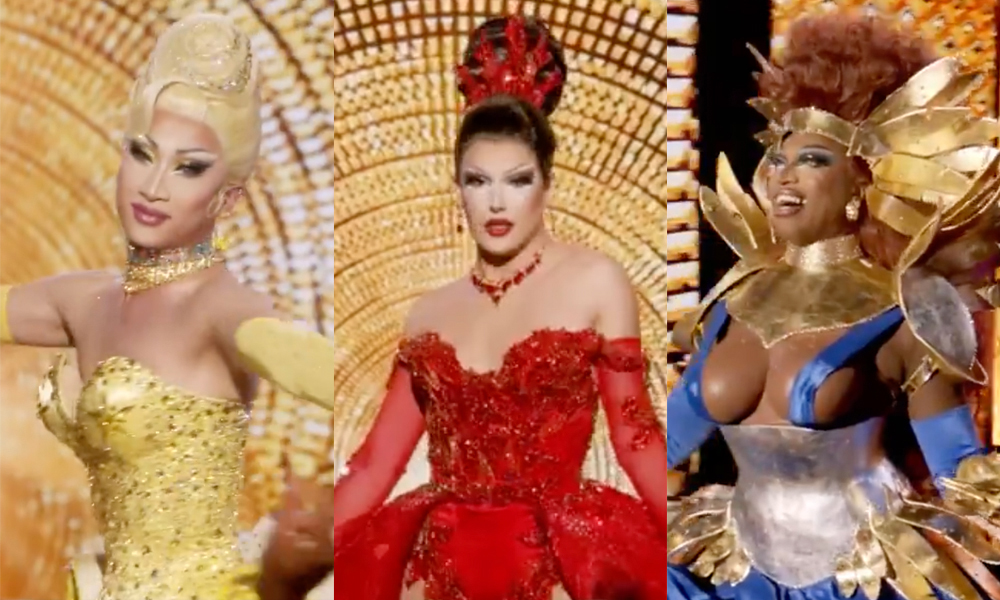Queer Cosmos astrologer and author Colin Bedell aims for inclusivity, accessibility and acceptance within astrology…
By Ashley Kowalewski-Pizzi
“What’s your sign?” used to be considered a terrible pickup line, but has now become a go-to question for someone to better understand you. While there are plenty of memes floating around about finding out someone’s exact time of birth to get their birth chart so you can fit them into a box of compatibility, astrology is more than just a simple horoscope.
Colin Bedell is a queer-identifying astrologer and author of the new book Queer Cosmos: The Astrology of Queer Identities & Relationships, an extension of his astrology site of the same name. His interpretations of the stars can be found on Cosmopolitan’s weekly horoscopes and he’s working to make astrology accessible, both within his book and with his online presence. Oh, and he’s a Gemini – and a twin – so it’s only natural that his most endearing qualities are his intuitive nature and ability to comprehend the balance in energies.
His aim is simple: Bedell is working to “deconstruct heteronormativity from the conversation” on astrology and create a space where queer people feel as though information is being provided from their perspective. In an excerpt from his book, Bedell writes, “Modern society offers us a treasure trove of applicable secular and spiritual resources that help queer people set themselves free from the barbed wire of shame, develop skills to cultivate the personal practice of authenticity, and sharpen our tools to rise above loneliness while we build functional relationships to service each other.”
Bedell explains he does not consider astrology an inherently gendered metaphysical system, but he does consider many of its practitioners, who work under the patriarchal claw, use inaccessible and gendered language alongside heteronormative stereotypes. When discussing the presence of the hokey, back-of-the-book horoscopes found in magazines and newspapers, he points out that many of these publications cater towards women and are deeply coded in misogyny.
His book largely focuses on romantic relationships, breaking down the compatibility between signs – though he explains there is no “good” or “bad” when it comes to compatibility, another way in which he is deconstructing some of the societally imposed norms. This focus on romance is to invite queer people to the table when it comes to resources and the narrative surrounding relationships – all without gendered stereotypes or pronouns. “I think that for queer people, we are deeply behind the curve with resources and availability for couples, relationships and romance. I made a point to make sure that I outline the compatibility section to be both love and desire so that if there’s just a sexual connection, we can talk about desire; if there’s a romantic and sexual connection, we can talk about love and both.” He adds: “I think queer people have a beautiful understanding of how to reconfigure interpersonal dynamic – that’s why the symbol of the chosen family is very much under the umbrella of queer studies. But when it comes to the romantic and relational sciences, we’ve been largely excluded from the narrative.”
He applies a reading for a queer person by calling in the planet that is opposite the gender they most identify with. He explains, “If you’re female-identifying, I like to talk about Mars; If you’re a male-identifying queer man, I like to call in Venus.” Non-binary people, Bedell believes, “are absolute geniuses at astrology because they’re already demonstrating both ends and understand that there’s no binary.” For them, he calls in Uranium energy, which is considered “the queerest planet” because “Uranus rules ideas on freedom and liberation…since our queer identities are not supported by the status quo.” (If you’re not sure what any of this means, Queer Cosmos offers a crash course in queer studies, astrology, and how the two fit together.)
Astrology, like so many of the other resources Bedell alludes to, can be used as a tool for self-discovery, self-understanding and self-acceptance, which is really the key to how we interact with the world around us – particularly when it comes to our relationships. In times where social change and adaptability are so important and necessary, using astrology as a mirror can help untangle the effects of trauma, suffering and the societally imposed norms that have been left unchallenged for too long.
And what does Bedell say is in store for us in the new year? Many people have begun putting in the work on self-discovery and understanding, but for 2020 – when Jupiter, the planet that rules wisdom and education, will be in steadfast Capricorn – Bedell says we’re not done putting in the work: “2020 demands emotional self-mastery. We’ve identified the problem; now we have to find the emotional self-mastery to find the solution. If we do it, we’ll feel amazing effects.”
—
ASHLEY KOWALEWSKI-PIZZI is a Toronto-based writer and editor who has more pink lipsticks, neon Post-its and daily cups of coffee than the average human. When she’s not testing out beauty products, you can find her hanging around the city with her pup Odie. Follow her at @ashkowapizzi.

Star-Struck: 'Queer Cosmos' Astrologer Colin Bedell
Related Articles
Take Note
Perfume notes that bridge the gender divide
Listen To The 8 LGBTQ+ Acts Competing In Eurovision 2024
From a Drag Race judge to a “rebel witch” to Years & Years former frontman, eight openly queer singers are heading to Malmö, Sweden to compete in the world’s largest music event. Which song will you be cheering for?
RuPaul’s Drag Race Season 16 Episode 16 RECAP: Grand Finale
The final three lip sync for their lives one last time and a new queen ascends to the throne





POST A COMMENT